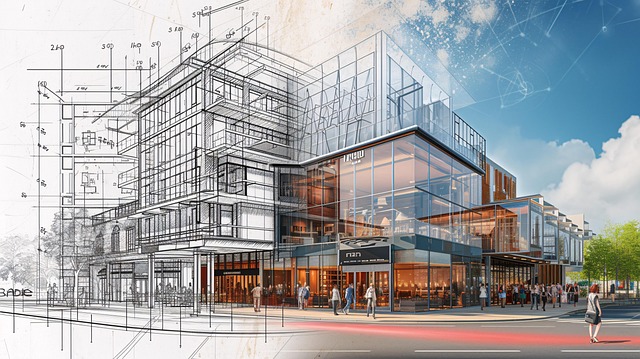Commercial gas water heaters tailored to business needs include storage and tankless models for efficient hot water supply. Integration with building automation systems optimizes control, reduces waste, and lowers costs, while gas condensing heaters enhance sustainability. Smart heaters enable real-time monitoring and demand-based heating, saving energy in institutional settings, especially during peak hours. Tankless heaters, popular in restaurants and hotels, offer superior efficiency and compact size. Future trends include condensing heaters and smart building platforms for further cost reduction.
Smart commercial gas water heaters are transforming the way buildings manage their hot water supply. Integrating these advanced systems with building automation offers significant advantages, from energy efficiency and cost savings to enhanced comfort and control. This article delves into understanding commercial gas water heaters, exploring the benefits of integrating them with building automation, and discussing implementation strategies and future trends.
- Understanding Commercial Gas Water Heaters
- Benefits of Building Automation Integration
- Implementation and Future Trends
Understanding Commercial Gas Water Heaters

Commercial gas water heaters are designed to meet the demanding hot water needs of businesses, institutions, and establishments ranging from restaurants and hotels to offices and healthcare facilities. These systems come in various types, including storage tank heaters and tankless gas heaters, each catering to different capacity requirements and operational preferences. Storage tank heaters, for instance, store large volumes of hot water, ensuring a steady supply while tankless models provide on-demand heating, significantly reducing energy consumption and maximizing efficiency.
The integration of these water heaters with building automation systems offers numerous benefits. Through advanced controls and sensors, commercial hot water systems can be optimized to respond to real-time demand, reducing waste and energy costs. Gas fired water heating technologies, particularly condensing water heaters, are renowned for their high energy efficiency, further contributing to sustainability goals. This seamless integration ensures institutional heating applications benefit from enhanced comfort, improved operational productivity, and reduced environmental impact.
Benefits of Building Automation Integration

Integrating smart commercial gas water heaters with building automation offers numerous advantages for businesses and institutions. One of the key benefits is enhanced operational efficiency; automated systems can optimize hot water distribution, ensuring that every faucet or boiler receives precisely the right amount of heated water at any given time. This precision leads to significant energy savings, as unnecessary heating and energy waste are eliminated.
Moreover, building automation allows for real-time monitoring and control of commercial hot water systems, enabling facility managers to track water usage patterns, detect anomalies, and make data-driven decisions. For instance, during peak hours in a restaurant or hotel, the system can automatically adjust water heating settings to meet surge demands, ensuring consistent hot water availability while maintaining optimal energy efficiency. This level of control is particularly valuable for high-capacity heaters and tankless gas heaters, where efficient management of resources is crucial for institutional heating applications.
Implementation and Future Trends

The integration of smart commercial gas water heaters into building automation is a growing trend that promises significant energy savings and improved efficiency in various institutional settings. By leveraging advanced technologies such as IoT (Internet of Things) sensors, AI-driven analytics, and automated control systems, these innovative heaters can optimize water heating processes based on real-time demand and occupancy data. For instance, tankless gas heaters, capable of instant hot water production without the need for storage tanks, are becoming increasingly popular in restaurant water heating and hotel hot water applications due to their compact size, rapid response times, and superior energy efficiency compared to traditional storage tank heaters.
Looking ahead, future trends in commercial hot water systems will likely focus on further enhancing energy efficiency through condensing water heaters that capture and reuse heat from exhaust gases. Additionally, the adoption of smart building management platforms will enable centralized control and monitoring of gas fired water heating systems across entire institutions, facilitating optimal resource allocation and reducing operational costs. These advancements not only contribute to sustainability goals but also drive down utility expenses for businesses, making them increasingly attractive in the competitive institutional heating market.
Integrating smart commercial gas water heaters into building automation systems offers significant advantages, enhancing energy efficiency, cost savings, and overall system control. By leveraging advanced technologies, facilities can optimize water heating processes, reduce waste, and improve occupant comfort. Looking ahead, the future of this integration promises even greater sustainability and smarter buildings as advancements continue to shape the commercial gas water heater landscape.






